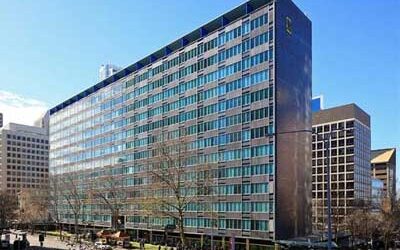Part 14 of the The Local Government Act 1993 (“LG Act“) sets out the legislative requirements for the conduct of councillors, staff, delegates and administrators of a local government body. Section 440 of the LG Act allows for the regulations to create a Model Code of Conduct, and requires council officials to comply with the provisions contained within.
The Model Code of Conduct sets out the minimum standards which are expected of council officials, and to assist council officials to act in a way that enriches public confidence in local government. As a result, breaches of the LG Act or Model Code of Conduct are treated seriously by the Office of Local Government.
Below are a selection of recent decisions with respect to various breaches of the LG Act and the Model Code of Conduct as it relates to breaches by council officials. These are an important reminder of the importance of adhering to the LG Act and Model Code of Conduct to ensure public confidence in local government is high.
Disclosure of personal interests, false or misleading disclosure
The recent decision of Deputy Secretary of the Department of Local Government, Planning and Policy v Douehi [2021] NSWCATAD 279 emphasises the importance of disclosing interests as part the requirements under the LG Act and the Model Code of Conduct, and that ignorance of the requirements was not an effective defence.
The applicant alleged various breaches by the mayor of Strathfield Council. These allegations included that the mayor:
- Failed to complete his written return disclosing interests for the 2017-2018 financial year in breach of section 449(3) of the LG Act (Ground 1).
- Failed to provide information as required by Divisions 1 and 2 of Part 8 of the Regulations by failing to provide written returns (Ground 2).
- Lodged returns disclosing interests which he knew, or ought to have reasonably known, were false or misleading in breach of section 449(1A) of the LG Act (Ground 3).
- Failed to provide information required by Schedule 1 of the Model Code of Conduct in September 2019 (Ground 4).
- Lodged a return disclosing interests in September 2019 which he knew, or ought to have reasonably known, were false and misleading in breach of clause 4.23 of the Model Code of Conduct (Ground 5).
- Failed to comply with a direction given under section 440H of the LG Act (Ground 6). This section allows the Departmental Chief Executive to investigate or seek a report on the misconduct of a councillor.
The mayor provided evidence that he was aware of his failure to properly disclose the address of each parcel of real property, corporate interests and social interests and the nature of such interests since the initial written return. This included a range of trusts. He claimed he took full responsibility for the incorrectly completed forms and assisted the Office of Local Government with the investigation. The respondent also stated he was not aware of his corporate structure and was ignored by a previous advisor in completing the disclosures as an explanation for the disclosure of interests alleged to be false and misleading.
Through cross-examination, it was revealed that the mayor heavily relied on his accountant for knowledge of the matters at hand and claimed he was “not that educated” in response to why he had no recollection of emails between his accountant and the Principal Investigator.
It was found Grounds 1, 2 and 3 were breached as the mayor admitted, due to a failure to provide the required information within the stipulated timeframe. Ground 4 was breached by failing to disclose the correct name, address and role in multiple trusts against the clauses of the Code. On the balance of probabilities, Ground 5 was also made out, as while it was not proven that the respondent knew that the September 2019 return was misleading in a material particular, he ought to have known. For Ground 6, mayor did not provide to the Principal Investigator the information requirements set out in the LGA direction, including tax returns for numerous trusts, and this constituted a breach.
Consequently, there were breaches of all six grounds.
Misconduct, defamation, non-pecuniary conflict of interest, bringing Council into disrepute
The recent case of Deputy Secretary, Local Government Planning and Policy v Byrne (No 2) [2021] NSWCATOD 112 provides a reminder that Councillor’s obligations under the LG Act must be adhered to even where you may be the victim of defamatory posts made by other Councillors.
The facts involved an approved amendment by Council to the Marrickville Development Control Plan (the DCP) for the Victoria Road Precinct. Councillor (Clr) Lockie critiqued the decision on a Facebook post and many individuals commented. The comments implied that Clr Byrne and other councillors who voted in favour of the DCP were corrupt. As a result, Clr Byrne claimed he was defamed by the comments made by third parties (including other councillors) on the post and that Clr Lockie had knowledge of these comments and failed to remove them within a reasonable time. Clr Byrne demanded that Clr Lockie deleted the comments and posted a public apology on Facebook. A similar demand was made to Clr Hesse, one of the authors of the comments that Clr Byrne claimed was defamatory. Subsequently, Clrs Lockie and Hesse were left out of discussion and voting on the DCP matter due to a motion moved and voted in favour of by Clr Byrne, who chaired the council meeting.
Lawyers for Clr Byrne also wrote to Clrs Lockie and Hesse demanding apologies at the next Council meeting and to delete the aforementioned Facebook posts. At a later Council meeting, Clr Lockie delivered a public apology on the terms agreed upon between her and Clr Byrne’s solicitors. Meanwhile, Clr Byrne had not declared a conflict of interest at multiple Council meetings that Clrs Lockie and Hesse were impacted in.
It was alleged that Clr Byrne engaged in misconduct as defined in section 440F(1) of the Local Government Act 1993 (LGA) as well as numerous violations of the Code of Conduct. The misconduct was alleged to have stemmed from a number of factors including:
- His non-pecuniary conflict of interest in the Council meetings and motions.
- Bringing other councillors and the Council into disrepute through his allegations.
- Engaging in improper, unethical conduct that was an abuse of power in his position as Mayor and as a councillor.
- Making personal reflections on Clrs Hesse and Lockie which was likely to bring the Council into disrepute.
In the first instance, it was decided that Clr Byrne did have a conflict of interest and that the above allegations were established, except for the allegation claiming an abuse of power. It was found that Clr Byrne misunderstood the meaning of non-pecuniary interest in the meetings but should have been alerted to it by Clrs Hesse and Lockie removing themselves from the meeting for the same reason.
Clr Byrne’s actions therefore fell short of what is required for the proper administration of local government and for the maintenance of public confidence. As a result, a period of suspension of the right to be paid a fee or other remuneration was found to be an appropriate action against Clr Byrne in the circumstances.
Misconduct, personal relationship, influencing a council officer
The case of Coppock v Secretary, Department of Planning and Environment (No 3) [2021] NSWCATOD 96
involved a Councillor attempting to influence a council officer in relation to premises of a personal contact, and highlights the high standards of conduct expected of councillors.
The background to this case involved an allegation that Clr Coppock had called Mr Fisher, a Council Development Enforcement Officer, in relation to a site inspection of premises, and requesting that Mr Fisher not take enforcement action.
A report into the alleged misconduct was provided by a Conduct Reviewer, while Clr Coppock denied trying to influence any council officer. The allegations were initially substantiated in the report, with Clr Coppock’s conduct found in breach of numerous clauses of the Council’s Code of Conduct. At a subsequent Council Meeting, the Council did not adopt the recommendations of the Conduct Reviewer. Instead, the Department Chief Executive authorised preparation of a report to review the conduct. The departmental report found misconduct was made out as per section 440F of the LG Act, which warranted disciplinary action.
It was found that the premises owner had contacted Clr Coppock, who then contacted Mr Fisher. Mr Fisher reported the phone call to his manager because he felt that Clr Coppock had overstepped in requesting that an infringement not be issued. Clr Coppock claimed that he had no idea that the works at the centre of the inspection may be unauthorised at the time of the call. This evidence was not accepted. The Tribunal found that Clr Coppock was taking advantage of his position as Councillor to influence a member of staff in the performance of his public duties.
The need to remind councillors of the public interest and the maintenance of high standards of conduct, emphasising the unacceptability of misconduct and whether there has been any previous misconduct by the councillor previously were all factors taken into account in determining the disciplinary action taken. Any apology by the councillor and the need to maintain confidence in the standard of local councillors generally were also considered by the Tribunal. In this case, a reprimand, further training and a suspension of the right to payment of fees were deemed appropriate disciplinary actions, taking into consideration the circumstances of the offence including the history of the Councillor, his remorse and the seriousness of his actions among other factors.
If you would like advice about anything in this article, please contact Greg Lee on 02 8235 1254 or your usual ClarkeKann contact.


